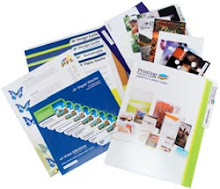As every business person knows, it is a lot easier to nurture existing customer relationships than it is to establish new relationships. That’s because your current customers already know and trust you. Newsletters are a fantastic tool to help reinforce these valuable relationships.
Promote without Selling
The purpose of a newsletter is simple – to inform and update customers about recent happenings within your company and industry. Every organization has interesting and beneficial information to share with customers. For instance, did you add a new product/service or receive some noteworthy recognition? Are there any important events, trends or recommendations you want to share?
By increasing awareness through a regular newsletter, you reinforce your firm’s credibility and remain continually fresh in your customers’ minds. A newsletter helps promote your company in a subtle and systematic manner…bear in mind that it does not serve the same function as a brochure, so it is not really the place for flashy advertising or sales hype. Instead, draw attention by providing interesting and useful content that provides a benefit to your customers.
The Permanence of Print
Newsletters sent by email are very common, but many companies and organizations prefer to distribute a printed copy. A printed copy actually has several advantages over its electronic cousin. A printed copy is portable, so it can be read anywhere and easily passed along. It also arrives as a highly visible piece, not as a single line on a cluttered screen that could be easily overlooked, deleted or diverted as spam.
And because they exist in physical form, printed newsletters are not quickly discarded. They tend to linger around a while which can set your organization apart…and increases the chance of sparking your customer’s memory with a colorful heading or catchy title. Printed newsletters also exhibit permanence, stability and trust (after all, how many scammers or fly-by-night companies distribute printed newsletters?)
Simple to Design
Since a newsletter is viewed more as a publication instead of as a promotional piece, it usually has simpler design elements than a brochure or catalog. And because you are relaying concise bits of information, the content is generally very easy to write. For example, you can provide short profiles of customers, employees, executives or projects. Or, highlight specific product or industry developments and statistics. Testimonials, FAQs or “Did You Know?” sections also provide good newsletter content. Any knowledge that benefits the customer is a high quality topic.
A newsletter doesn’t need to be lengthy, but it should be distributed in regular intervals such as monthly or quarterly. To maintain a fresh yet enduring presence, it is better to send out less information more frequently than more information less frequently. It is also important to have a consistent look among all your newsletters so the recipients learn to recognize the sender at a glance.
In addition, imagery is highly recommended because it provides more illustrative content and prevents otherwise plain blocks of text from decreasing readership. Full color is ideal but simpler color variations and even grayscale can make images and newsletter designs look quite appealing. Most newsletters can also be designed as self-mailers to streamline their distribution.






0 comments:
Post a Comment